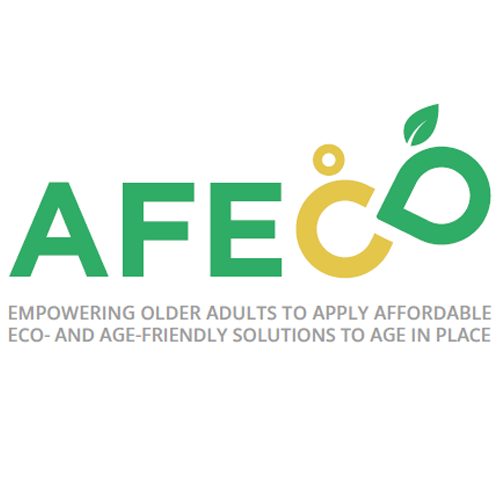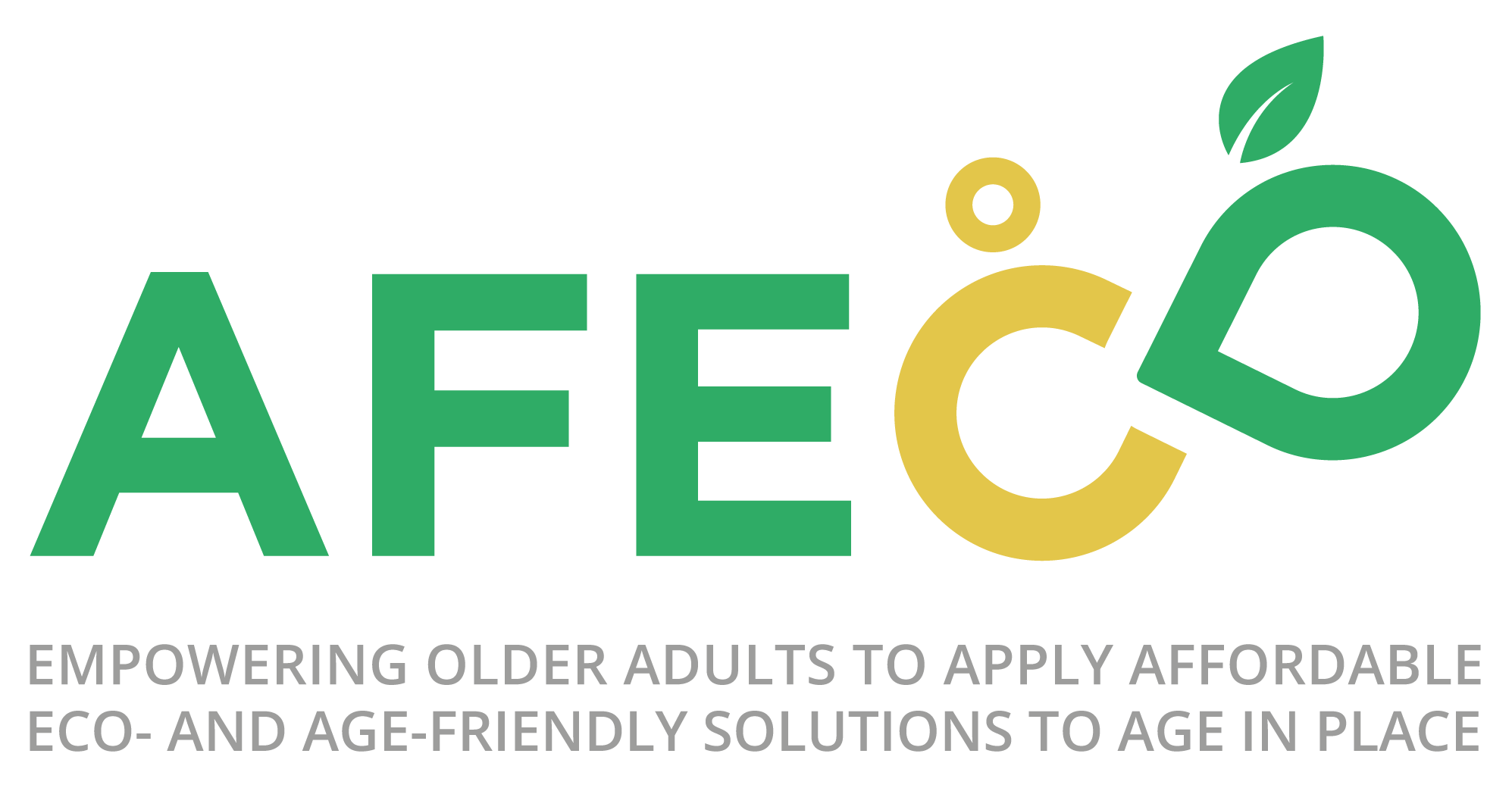Description
The core idea of the AFECO proposal is to empower older adults to apply affordable age-friendly and eco-friendly solutions in their own living environments to foster their participation in society, quality of life and prolonged independent living. The World Health Organization (WHO) developed in 2007 the concept of age-friendly environments, which embeds the concepts of age-friendly buildings, neighbourhoods, cities and communities. The concept makes use of a holistic approach to optimise social and physical (indoor and outdoor) environments as well as defining supportive provisions (such as meeting opportunities, public communication, healthcare and services) to improve social inclusion, independent living, equity, and enable active and healthy participation in society. Social inclusion in AFECO entails people with health issues, chronic diseases, disabilities, or people who face social and financial barriers. Our project will take on a multifaceted approach to social inclusion, within the context of the WHO concept of age-friendly environments, supported by the digital transformation that takes place in The Netherlands and in Europe since the launch of the WHO concept.
Climate change and environmental degradation are an existential threat to Europe and the world according to the European Commission. To overcome these challenges, the European Green Deal will transform the EU into a modern, resource- efficient and competitive economy. In The Netherlands, a similar approach and transition are taking place to foster eco- friendly solutions, such as “van het gas af” and abandoning investments in fossil energy sources. On an individual level, many older adults are concerned about the consequences of climate change, their finances and the future of their (grand)children.
In the AFECO proposal, we focus on finding affordable solutions for every older adult to foster the social inclusion of people with fewer financial opportunities. In the project we aim to include older adults with different social-economic statuses, health conditions, and chronic diseases or impairments to jointly define their knowledge level of age-friendly and eco-friendly solutions, promote them to express their learning needs and to co-create the learning offers with them. In this way, we aim to promote social inclusion for every individual, despite disease, impairment or social- economic opportunities.



